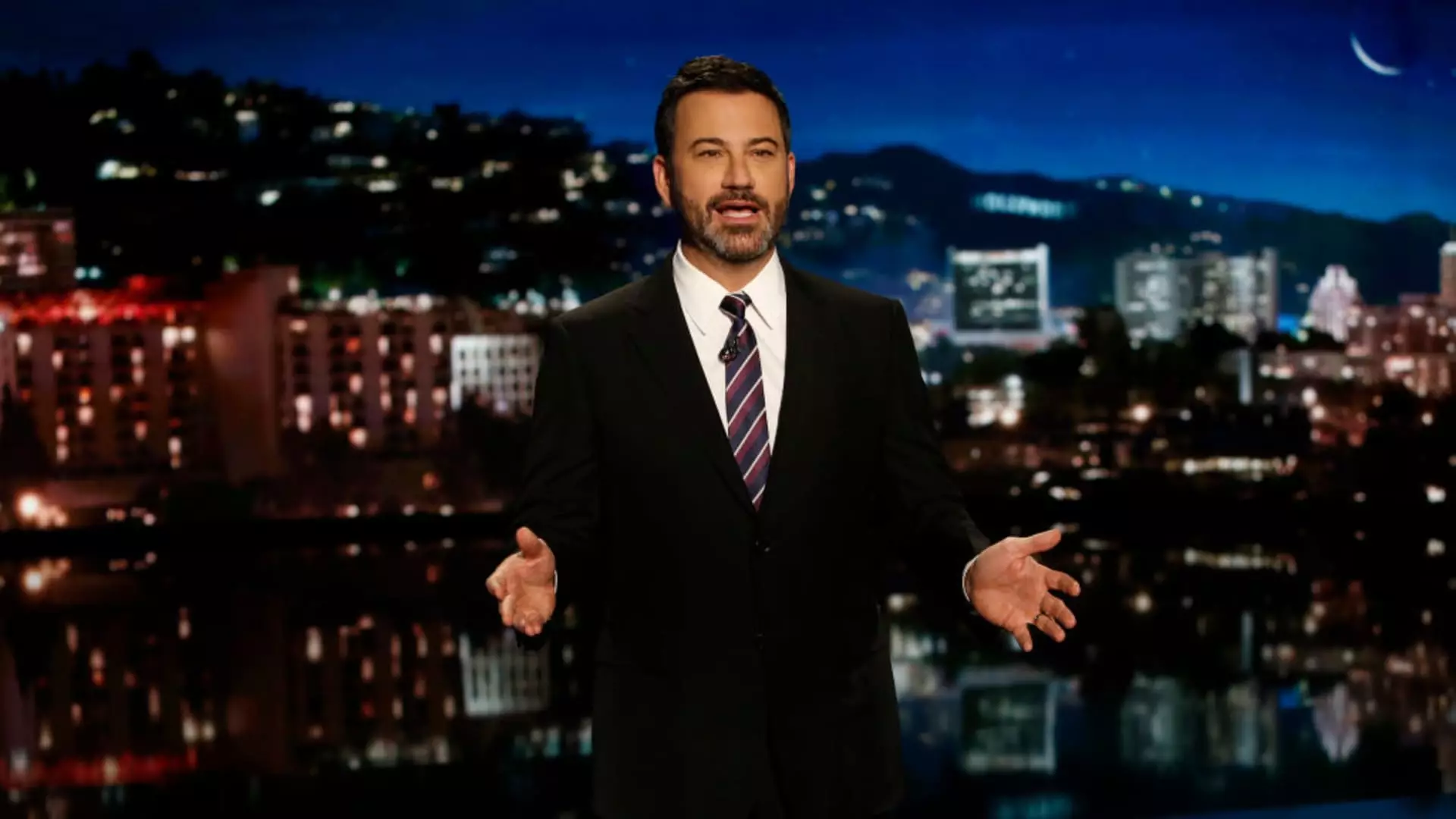In recent weeks, the controversy surrounding Jimmy Kimmel’s suspension from ABC has exposed a troubling trend: the powerful influence of political pressure and corporate interests threatening to undermine the core values of free expression. While some argue that entertainment figures should be responsible for their words, the swift punitive actions against Kimmel reveal a deeper concern—how fragile the principle of free speech has become in our modern media landscape. When a comedian or a talk show host faces potential career-ending consequences for political remarks or humorous comments, it signals a disturbing shift toward censorship masquerading as accountability.
Kimmel’s remarks on the killing of conservative activist Charlie Kirk sparked intense backlash, especially from conservative media and government officials. However, beyond the immediate controversy, the broader implications raise alarms about the potential for political ideology to influence media operations. The FCC’s involvement, coupled with pressure from corporate media groups like Nexstar and Sinclair, underscores how external forces can influence what remains on air and what is silenced. When the government or private interests start wielding influence over entertainment content, there’s a risk that political agendas will overshadow honest discourse, threatening the very fabric of democratic dialogue.
The allegations that Kimmel’s comments misled the public—triggering FCC threats and station preemptions—are moreover a dangerous expansion of authority. Suppressing a comedian’s voice because it challenges preferred narratives smacks of authoritarian tendencies. It’s not merely about the content of a joke but about who gets to control the conversation and what can be said without fear of repercussions. An open society must tolerate diverse perspectives, especially even when they are uncomfortable or provocative. To allow corporate or government censorship to dictate the boundaries of humor or political critique is to erode the very institutions meant to protect free expression.
The Political Climate: A War on Civil Liberties Disguised as Justice
The fallout from Kimmel’s suspension is emblematic of a broader cultural war that threatens to turn liberal values into tools of suppression. Liberals often champion free speech as a fundamental right, yet their support for punitive measures against a comedian highlights the paradox at play. The defense of free expression should extend to those with whom we disagree, not just to voices that echo our opinions. The double standard emerges plainly: when conservatives face similar suppression, liberals tend to defend the principle; but when left-leaning figures are silenced, the response is often muted or dismissive.
The reaction from high-profile figures like Michael Eisner and Rep. Alexandria Ocasio-Cortez illuminates a growing recognition that the assault on Kimmel’s speech is not an isolated incident. Instead, it is part of a troubling tendency where economic and political interests try to police narratives online and on television, shaping the boundaries of acceptable discourse. Their support suggests an urgent need to reinforce the importance of a free press—one that resists external pressures and prioritizes the rights of creators to speak their minds without fear of repression.
Moreover, the violence and unrest—evidenced by protests and a shooting outside an ABC station—indicate that the consequences of attempting to suppress dissent are not merely theoretical. When desired narratives are enforced at the expense of honest debate, protests and chaos often follow. This escalating conflict underscores that a society which suppresses speech is inherently unstable, as the electorate’s frustrations boil over into violent expressions. Free speech is a safeguard against extremism; once it is compromised, the path to authoritarianism becomes dangerously clear.
The Dangerous Future of Censorship in Democratic Societies
The broader danger lies in the normalization of censorship as a tool to control narratives and silence dissenters. When corporate media, government officials, or even powerful individuals leverage their influence to suppress voices they disagree with—whether through fines, licensing threats, or public backlash—the foundational principles of democracy are undermined. The idea that a comedian’s remarks could threaten a license or lead to a show suspension suggests that our society is inching toward a state where speech is conditional and controlled.
This trend could have devastating consequences beyond one late-night show or a single controversy. It risks creating an environment where critical voices are stifled, and the free exchange of ideas becomes a privileged activity reserved for the compliant few. The liberal core values of openness and tolerance are at stake here; abandoning these principles in the name of “responsibility” or “public decorum” effectively caters to authoritarian impulses that threaten the very essence of democratic debate.
While accountability for speech is necessary, it must not cross the line into censorship that punishes unpopular opinions or humor that challenges powerful interests. Democracy thrives on the plurality of voices, even those that make us uncomfortable. Protecting this diversity requires vigilance against those who would silence dissent merely because it conflicts with their political or economic interests. As the Kimmel controversy illustrates, the threat is not just to one show or host but to the integrity of free expression itself—a cornerstone upon which a healthy, vibrant democracy depends.


Leave a Reply